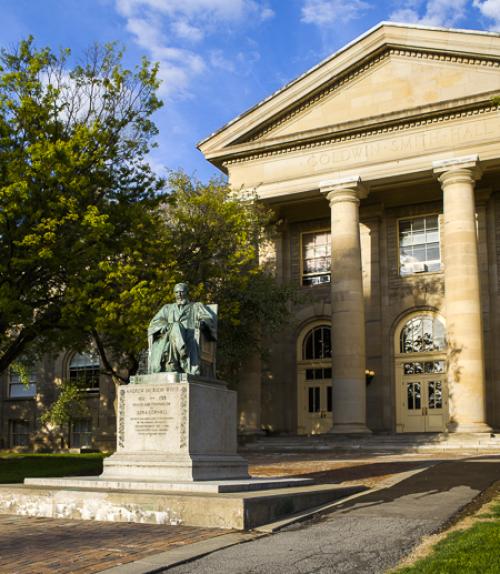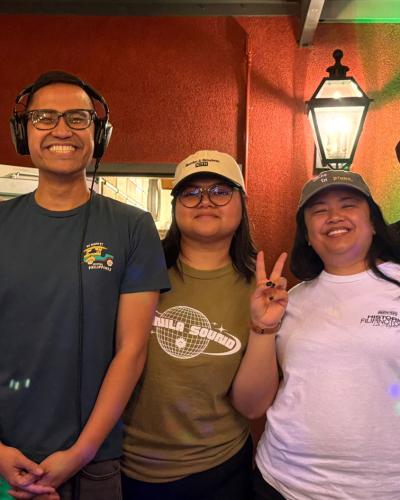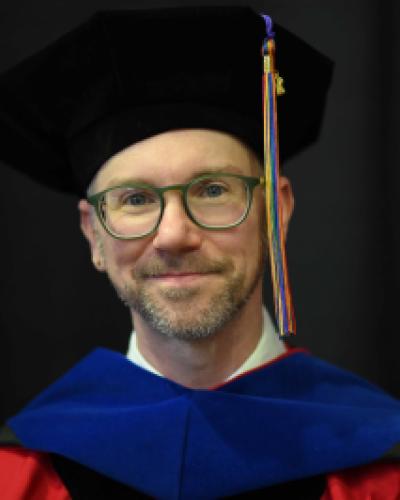PMA Alum and Visiting Lecturer Dr. Joshua Bastian Cole-Kurz ‘22 has published an academic article called “You Can’t Go Home Again: Remakes as Trans Method” in the Arts & Culture section of the newest edition of Transgender Studies Quarterly (TSQ).
Read the article here through Duke University Press.
Read our interview with Cole:
What inspired you to create "You Can’t Go Home Again: Remakes as Trans Method"?
Numerous elements converged in the creation of this piece, which distinguishes it somewhat from my previous publications. Its timeliness is noteworthy, coinciding with my recent assignment of Eugenia Zuroski’s “Where Do You Know From?” exercise to my students. This task prompts them to reflect on their recurring thoughts and preoccupations. Clara Bradbury-Rance characterizes this as a feminist pedagogy, empowering students to engage with citation beyond mere avoidance of plagiarism and to articulate their own intellectual journeys.
What was your approach in crafting this academic publication?
Unbeknownst to me at the time, I approached the production of this article in a manner akin to that method. It has been years in the making, originating from material within my dissertation. Initially, this content appeared in a chapter titled “Re-vision” which garnered recognition as a standalone piece and earned the Chris Holmlund Graduate Student Writing Prize from the Society for Cinema and Media Studies (SCMS). This material, included in the award's journal publication draft, afforded me the rare opportunity for close editorial scrutiny, despite the section ultimately being cut from the larger piece. I removed it and set it aside, hopeful for its eventual placement in a new home, and TSQ proves to be the perfect fit. Central to its exploration is Gus Van Sant’s 1998 experimental homage to Alfred Hitchcock’s Psycho. Yet, my inquiry extends beyond remakes, framing them through the lens of nostalgia—an intricate and sentimental affect characterized by a melancholic yearning for the familiar. I trace my own attachment to certain objects back to my father, who has suffered from hoarding anxiety disorder for at least my entire life, and to the loss of my childhood home to foreclosure in 2015, coinciding with my first semester at Cornell.
What would you like readers of this publication to know about you and your work?
It's crucial to acknowledge the profound influence of SCMS, as well as the invaluable support and mentorship it has provided, not only for this piece but for others currently in the publication pipeline. Furthermore, the only individual to have reviewed this section of my dissertation chapter prior to its excision was my staunchest advocate and advisor at Cornell, Andrew Campana. He wholeheartedly endorsed this section’s significance, despite my awareness of its inevitable removal from its original context. Thanks to Dr. Campana's steadfast support, as well as my colleagues and friends in SCMS and elsewhere, I've gained momentum in my publishing endeavors. Mere tolerance falls short; it's imperative to surround oneself with individuals who genuinely appreciate and champion one's work and identity. While it's undeniable that academia largely operates within a business framework, our writing, our thoughts, and our feelings hold inherent value. This is why we are here.
Read more about Cole’s work.





